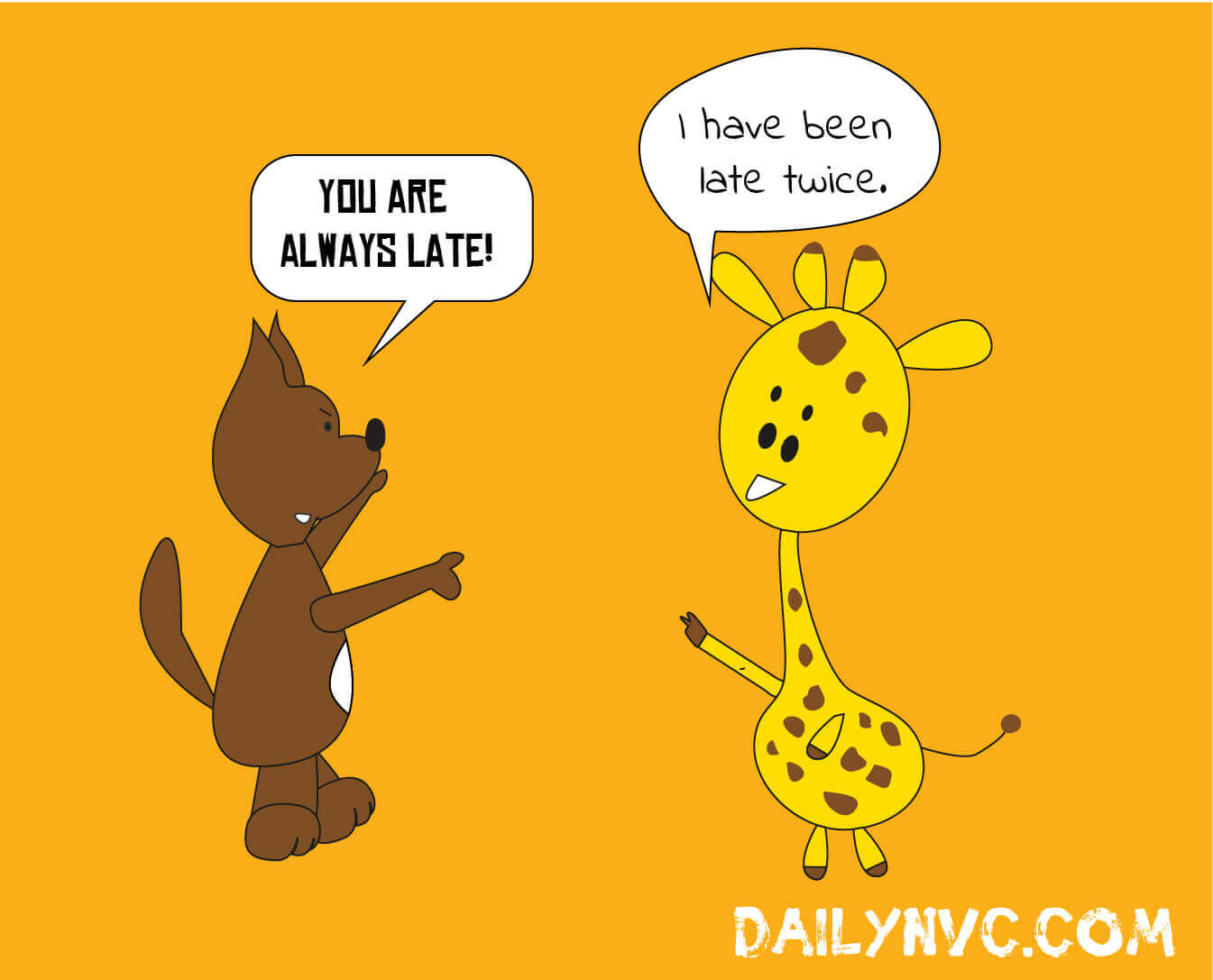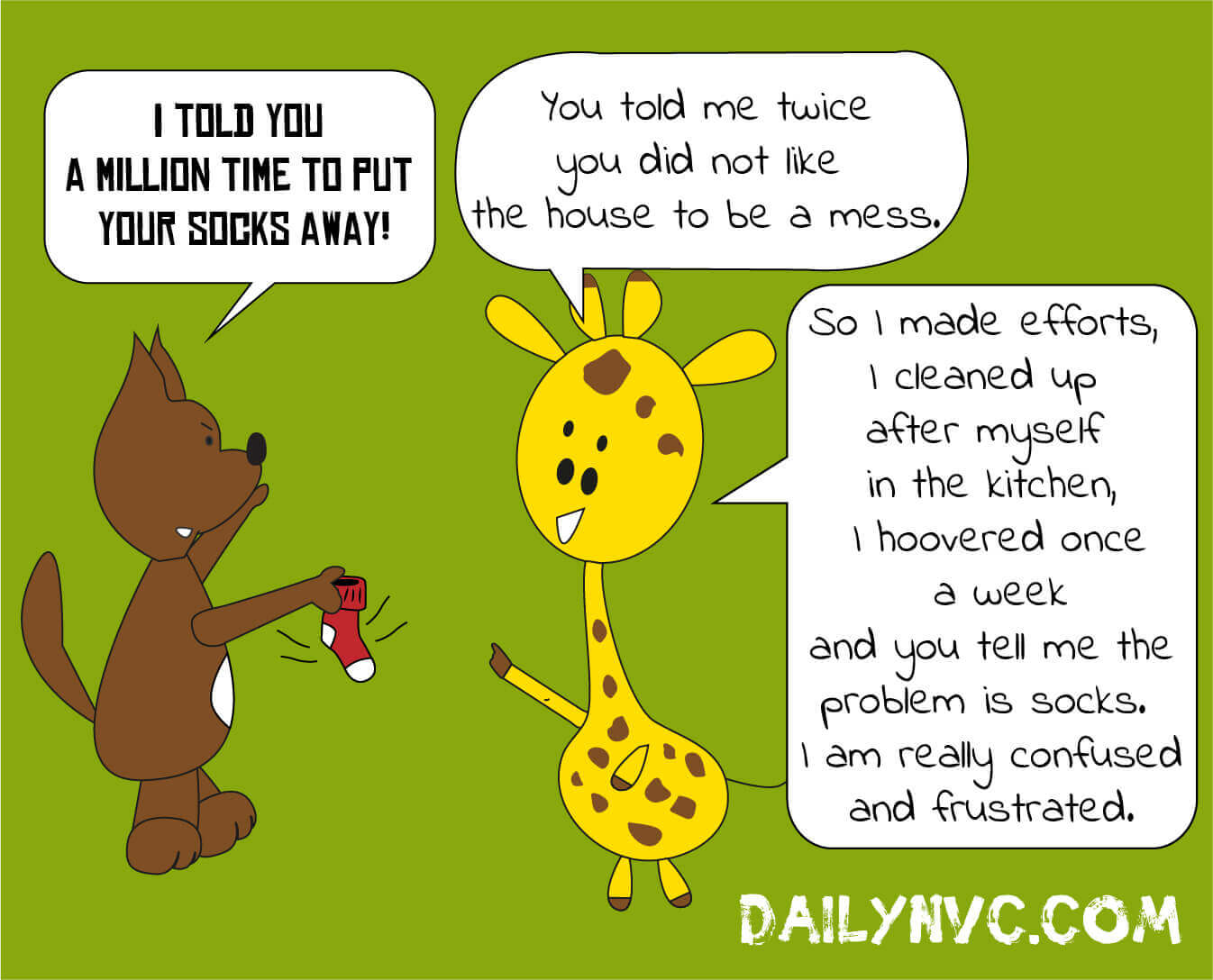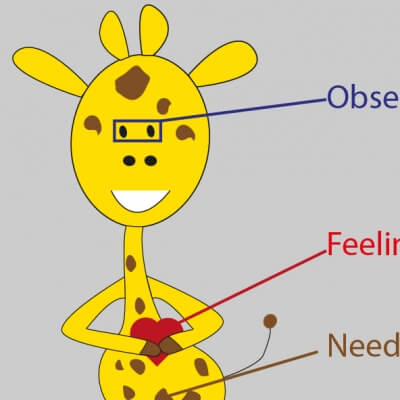Our friend, the jackal has a lot of judgments. And judgments have the particularity of being very vague. When we speak, vagueness prevents communication from flowing. That is why, observation is one of the main component of NVC. Making an observation is describing what you see with facts. “Peter has worn the same tee-shirt all week” instead of “Peter never takes a shower”.

Observation is like a camera, it sees things how they are and not as we think they are. It helps us being more connected because we avoid drawing conclusion of something we see. If you say to your spouse “I hate when you avoid me”, it is not the same as “I feel sad because we only spent 10 minutes together today”. When we state the facts, we share a common reality with the other person and we can engage more easily in a healthy conversation.
One day, I was in a restaurant, and I overheard a couple’s conversation, it went like this:
The man: “Honey, I suggest you not to order that burger, it’s 1600 calories.”
The woman: “Before saying that I’m fat, you should look at yourself!”
The man (answering calmly): “I never said anything like that.”
The woman: “Why would you say that then, if not to stop me from eating that greasy burger?”
The man: “That is what I intended to do, stop you from eating that burger. It didn’t mean I think you are fat."
Pause
The man (hesitating): “To be honest… I was kind of hoping to share a desert with you and I was afraid you would not have room for one after such big meal.”
The woman (with a smile on her face): "I am so relieved, I am so obsessed about my weight that I interpreted what you said instead of hearing your words. You should have told me that in the first place!”
We can see here that when we are in what I call “an interpretative jackal mode”, we do not hear the words, we imagine what our partner might mean.
We can also see that by not being completely authentic and precise we invite the jackal to express himself.




